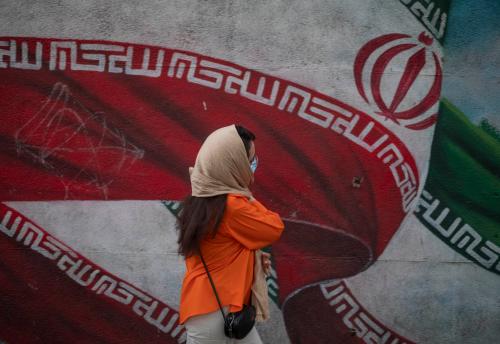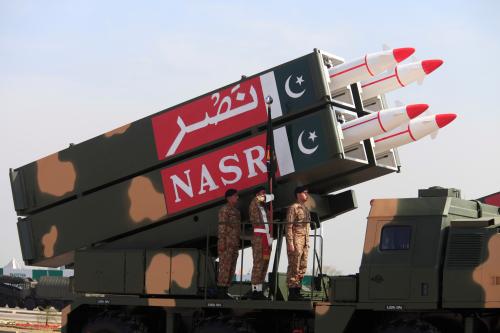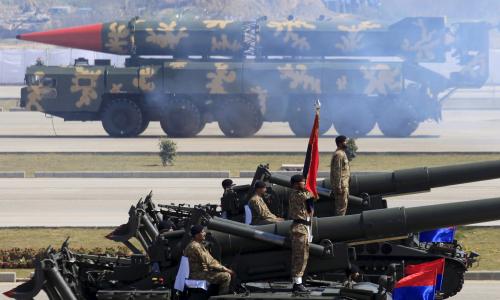NEAL CONAN, host: This is special coverage from NPR News. I’m Neal Conan in Washington.
Saddam Hussein captured earlier yesterday, in fact, at this point, by US
forces south of Tikrit, pulled out of a hole near a small farmhouse across the
Tigris River from one of the palaces from which he used to rule Iraq. Joining
us now to talk about what Saddam capture means for the Bush administration and
the future of policy in Iraq are Ivo Daalder, senior fellow at The Brookings
Institution, co-author of “America Unbound: The Bush Revolution in Foreign
Policy.” He’s with us from his home in Vienna, Virginia.
Good to speak with you again.
IVO DAALDER: Good to be here, Neal.
CONAN: And Robert Kagan is also with us, a senior associate at the Carnegie
Endowment for International Peace, the author of “Of Paradise and Power: America
vs. Europe in the New World Order.” He’s with us from his home in McLean,
Virginia.
And good of you to be with us.
ROBERT KAGAN: Thank you.
CONAN: And how do you both think that the capture of Saddam Hussein will
affect the US military operation in Iraq, Ivo Daalder?
DAALDER: Well, that remains to be seen. The military commanders have
told us all along that Saddam was not likely to be in control of the insurgency
or even directing it. The fact that we found him in a hole, quite disoriented
and quite alone, frankly, suggested that they were right in that assessment
which also suggests that the insurgents and their ability to organize attacks
that we have seen and over the past few months is likely to continue. And,
indeed, the fundamental goal of the insurgency, which is first to get the
Americans out of Iraq and secondly to dominate the postwar political scene, that
goal has not changed just because Saddam is now removed from the scene. Many of
the people who want to maintain and, in fact, come back into power are still out
there and are still going to use the kind of attacks and terrorism that we’ve
seen, one would assume, in the future.
CONAN: Robert Kagan, the administration certainly and military officials in
Iraq are not claiming that this is going to cause any immediate shutdown of the
attacks there, but over the long haul, do you think it will have an effect?
KAGAN: Well, I think the most prudent thing to do is to go on the
assumption that Ivo’s just stated, that we don’t know what effect it’s going to
have. I guess it all depends on what one things the makeup of the insurgency
is. My guess is, and it’s just a guess, of course, is that some percentage of
that insurgency is a sort of pro-Saddam and will be demoralized by Saddam’s
capture. I’ve read some reports already. I don’t know how true they are that
they did seem to find some communication between Saddam and some of the
resistance leaders. We’ll find out more in the coming days, but I think the
safest assumption, the assumption that the military should certainly work on, is
that it won’t make a difference or at least it won’t make a substantial
difference and they will have to keep up some serious efforts to deal with the
insurgency.
I think the bigger effect probably is political in Iraq. Perhaps–I think
that there are a lot of people who have been afraid that Saddam would some day
return, that they couldn’t be sure the Americans had really gotten rid of him. I
think those people will now feel a lot freer than they did before which I think
opens up more potential for a political opening and political success in Iraq.
That’s where I think the big turnaround may come.
CONAN: There have been any number of moments since the famous picture of the
statue being toppled in Firdos Square back in April, moments that were described
as opportunities to remake the situation in Iraq which has been presenting the
administration with mounting casualties, very expensive, beleaguered aspect to
it. Obviously, there’s been progress on other areas as well, but this is
another moment. How do you think, Robert Kagan, the administration should best
take advantage of it?
KAGAN: Well, I mean, we haven’t had sort of a victory for the
administration in a while, and I think that the administration, if it’s smart,
will use this victory to try to deal with some of the problems that it’s had.
Particularly, this is a moment, again as was the initial victory back in the
spring, for some magnanimity. I think one of the interesting things we’ve seen
today are some very strong, positive statements coming from the French
president, from the German chancellor, Gerhard Schroeder. This might be a
moment–and I hope the administration will see that–to reach out to those
people and others who may have opposed the war and probably try to get some help
in terms of rebuilding Iraq and get support for building democracy in Iraq. And
I think victory is a time for magnanimity.
DAALDER: Well, yeah, I do agree with Bob. I do think that it’s rare in
life that you get a second chance, and I think we are at this particular point
getting a second chance to reopen the possibility of bringing the international
community, most particularly those of our friends who have significant resources
and troops, back into Iraq on a positive note to start working with them
together in helping in the transition and in the reconstruction and to
hopefully, for example, get rid of this quite remarkably inept diplomacy of last
week where we were saying that certain countries who were not part of the
coalition weren’t going to be allowed even to bid for contracts.
I would also, I think–if Bob is right–and he may well be–that the
psychological impact is in some sense positive, particularly in the Shia
community, but also among some Sunni who were fearing the return of Saddam and
therefore not able to move as quickly as possible as they might otherwise
have–if that is true, and I think it may be a good assumption to assume it’s
true, that also means I think we can accelerate the political transition from
the current occupation–remember, this is still an occupation under
international law–to allowing sovereignty for the Iraqi people to return sooner
even than the current six–it’s now six months from now–process allows, in
order to accelerate the Iraqi people having a say in their own future and having
a sense that their future’s going to be determined by them rather than by
Saddam, who’s now gone, or the United States, which is still in control.
CONAN: You both say they should reach out not only to European allies but to
the Iraqi people. Give me a for-instance. What would be possibly a productive
way to do it, Robert Kagan?
KAGAN: Well, I guess I think that I would like to see–it’s not so much
the transition that needs to be accelerated, because I think the transition to
Iraqi sovereignty is moving, you know, as rapidly as even the Iraqis think–they
seem to be fairly satisfied with it. The question really comes down to one of
elections. And as you know, there’s been some debate within Iraq and also
between Iraqis and the American administration as to how quickly to hold
elections. There are some leading Shiites who would like to hold elections for
the constituent assembly that’ll write the constitution. I’ve always believed
that that was the right thing to do, and I still think that they ought to
accelerate the electoral process. It’s not so much sovereignty to Iraqis, but
whether the Iraqis, you know–what role does the average Iraqi play in choosing
their form of government and in choosing their leaders. And I think that this
might be an opportunity to accelerate that.
CONAN: Ivo Daalder.
DAALDER: Yeah, no, I think that that’s correct. I mean, what has
happened for the past eight months–and I think it’s the tragedy of the past
eight months in some sense–is that we haven’t conveyed a sense to the Iraqi
people nor frankly to much of the international community that this is about
Iraq and it’s about the Iraqi people and it’s not about us. I mean, again, the
contracting decision just reinforced a sense–not that I think that was the case
in true, but the perception, at least–that this was about us, not about them.
And we need to have a process both in terms of the transition to sovereignty and
in terms of finding ways to get the Iraqi people to have a say in this process.
So far, they haven’t been allowed to–‘allowed’ is the wrong word–they haven’t
been able, frankly, to have a say in the process, and the quicker that happens,
the better it is.
And the fact that Saddam is now gone is an opportunity to say, you know, we
might have said when Saddam was still around that the fear factor was so high
that the uncomfortable nature and the psychology of much of the Iraqi population
prevented us from allowing the Iraqi people themselves to have a major role to
play in their future. That, I think, argument is now gone, and we should seize
the opportunity again to take a second chance and do the right thing. Even if
we haven’t done it in the past, we ought to do it in the future.



Commentary
What the Capture of Saddam Means for the Bush Administration
December 14, 2003